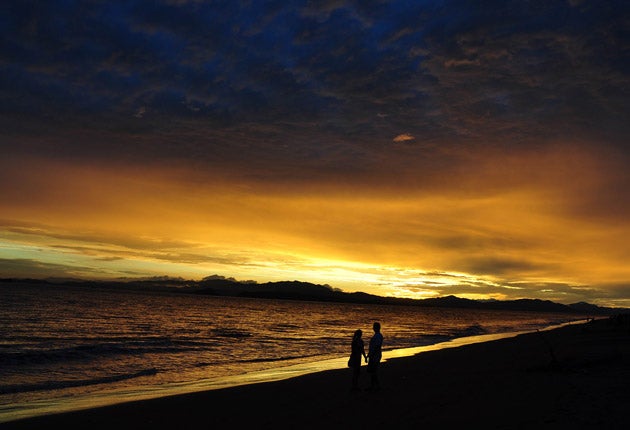Kate Simon: It's time to make a splash about the abuse of water
Travel View

Is water set to become the next big issue for travellers?
The campaign group Tourism Concern thinks so. It has turned its attention to the problems faced by communities whose water rights are under threat from the local tourist industry. The result is the launch of a new initiative, the Water Equity in Tourism campaign (WET).
"Tourism is a thirsty, rapidly expanding sector, which is placing unprecedented pressure on water resources in places where it is already scarce due to climate change, lack of infrastructure and weak governance," says the organisation's campaigns manager, Rachel Noble. "While the poorest and most vulnerable often go without, next door tourists are free to enjoy swimming pools and golf."
Tourism Concern claims water supplies are too often being diverted from local domestic and agricultural needs, overuse of aquifers and reservoirs, and contamination of fresh water and waterways. Its case studies include Zanzibar, where it says tourists typically consume 15 times more water per day than local residents. And in the emerging holiday destination of Costa Rica, the organisation points to the mass demonstrations that took place in one town to try to prevent plans for an $8m (£5m) pipeline that would take water from the local aquifer to coastal resorts.
Tourist arrivals are expected to exceed 1.6 billion by 2020, according to the UN World Tourism Organisation (UNWTO), which also predicts that the number of people living in places where water is scarce could rocket from the current three billion to seven billion in less than 20 years. No wonder water rather than oil is predicted as a cause of future wars.
What is the industry doing so far? We've all seen the little card in the hotel bathroom asking guests to desist from requiring the over-laundering of towels in order to conserve water. And any forward-thinking travel company knows it must have a sustainable tourism policy in place.
But are too many businesses really doing very little on the ground? For example, Tourism Concern claims too many water-saving initiatives from the travel industry focus on reducing consumption within their hotel resorts. It wants a wider approach taken that looks at fairer distribution and the water needs of local communities to take precedent.
The WET campaign is to be commended for challenging industry and governments on this issue – water needs a much higher profile in the green tourism debate. (This and other issues will be up for debate at the Ethical Tourism Masterclass being organised by Tourism Concern next Saturday – see tourismconcern.org.uk.)
But will there be any real appetite from governments or the profit-inspired companies themselves to make such fundamental changes to what is one of the world's biggest industries and on which so many countries now rely for their economic survival?
Got a travel issue? Email sunday travel@independent.co.uk
Join our commenting forum
Join thought-provoking conversations, follow other Independent readers and see their replies
Comments